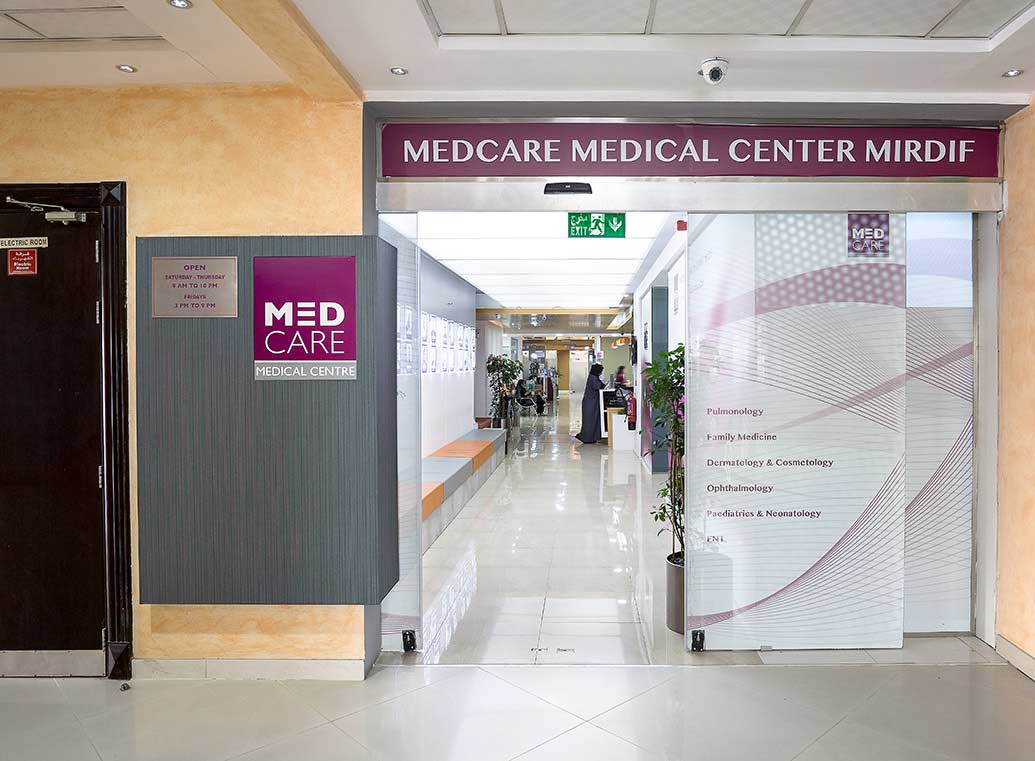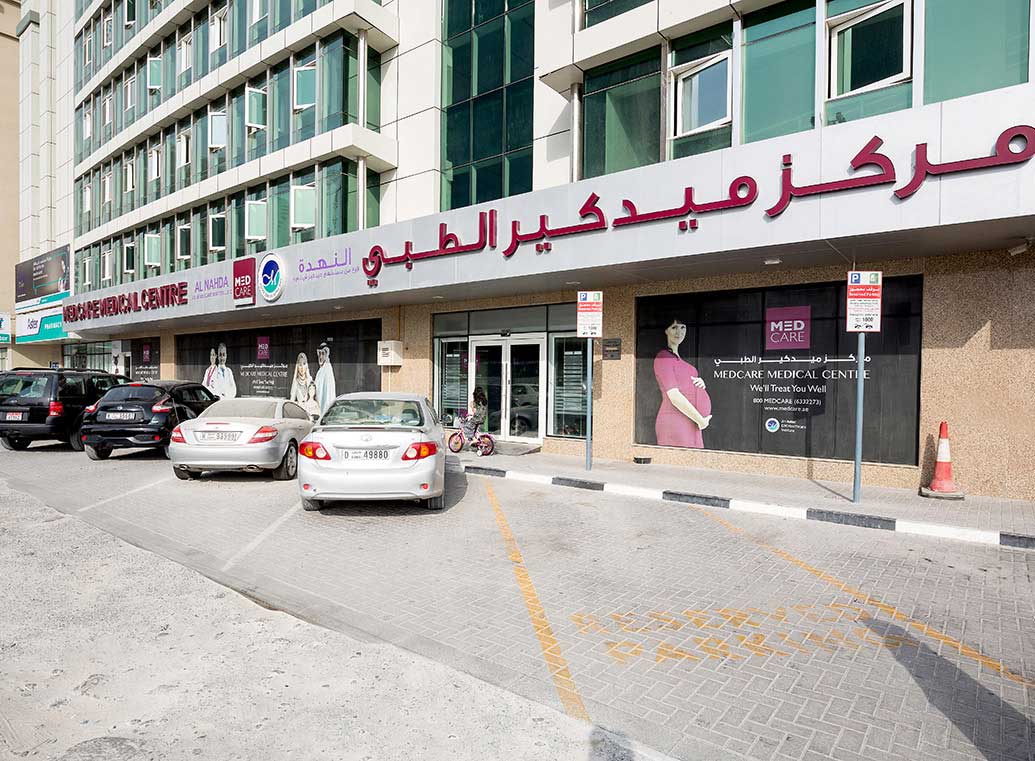LOCATIONS
Medcare Hospital Al Safa

Medcare Women & Children Hospital

Medcare Orthopaedics and Spine Hospital

Medcare Hospital Sharjah

Jumeirah - Medcare Medical Centre

Meadows – Medcare Medical Centre

City Center Mirdif - Medcare Medical Centre

Marina - Medcare Medical Centre

JBR - Medcare Medical Centre

Mirdif - Medcare Medical Centre

Sheikh Zayed Road - Medcare Physio & Rehab Centre

Sheikh Zayed Road - Medcare Paediatric Speciality Centre

Mirdif - Medcare Speciality Centre

Discovery Garden - Medcare Medical Centre

Sheikh Zayed Road - Medcare Eye Centre

Motor City - Medcare Medical Centre

Khawaneej - Medcare Medical Centre

Al Barsha - Medcare Medical Centre

Medcare Dr Saeed Al Shaikh Gastro & Obesity Centre

Town Square Dubai - Medcare Medical Centre

Sharjah - Medcare Medical Centre

Al Zahia – Medcare Medical Centre

Medcare Royal Speciality Hospital

Medcare Medical Centre Al Furjan West

Medcare Medical Centre Tilal Al Ghaf

Medcare Medical Centre Palm Jumeirah

Medcare Medical Centre Damac Hills

Medcare Medical Centre – Arabian Ranches 3

Medcare Medical Centre – The Valley

Brain Tumors - Symptoms, Causes, Signs, Diagnosis, Treatment
Written By: Dr. Anoop Narendran
Dry Eye - Symptoms, Causes and Treatment
Written By: Dr. Ammar Majbour
Age Related Macular Degeneration (amd) - Symptoms, Causes and Treatment
Written By: Dr. Ayman Shouman
Hyperopia (farsightedness) - Symptoms, Causes and Treatment
Written By: Dr. Marcia Martins
Myopia (nearsightedness) - Causes, Symptoms and Treatment
Written By: Dr. Sashwanthi Mohan
Astigmatism - Symptoms, Tests, Causes, Treatment and Diagnosis
Written By: Dr. Nandini Sankaranarayanan
Bunions - Symptoms, Causes, Treatment and Prevention
Written By: Dr. Maan Taba
Osteopenia - Symptoms, Causes and Treatment
Written By: Dr. Azzam Fayyad
Arthroscopy - Types, Procedure, Recovery
Written By: Dr. Azzam Fayyad
Hypothyroidism (underactive Thyroid) - Symptoms, Causes and Treatment
Written By: Dr. Yasmeen Ajaz


Medcare brings the network of multi-speciality hospitals, medical centres and hundreds of specialised doctors work with one core passion in mind – your own and your family's well-being.
We maintain the highest possible standards in all aspects of healthcare; doctors, treatments, facilities and paramedical support that are on par with the global standards. All Medcare hospitals are accredited by the Joint Commission International (JCI), which is widely accepted as the gold standard in global healthcare.
We’ll treat you well. That’s our simple promise, and we will do everything it takes to make things easy for you when health is posing challenges. Our specialists and support staff work in a coordinated and compassionate manner, and deliver compassionate care for all medical conditions.
| NETWORK | INPATIENT | OUTPATIENT |
|---|